NEWLY-PROPOSED STATEWIDE FLOODING FUND WOULD BE SPRINKLED WITH $1.2B FROM TEXAS’S RAINY DAY RESERVES 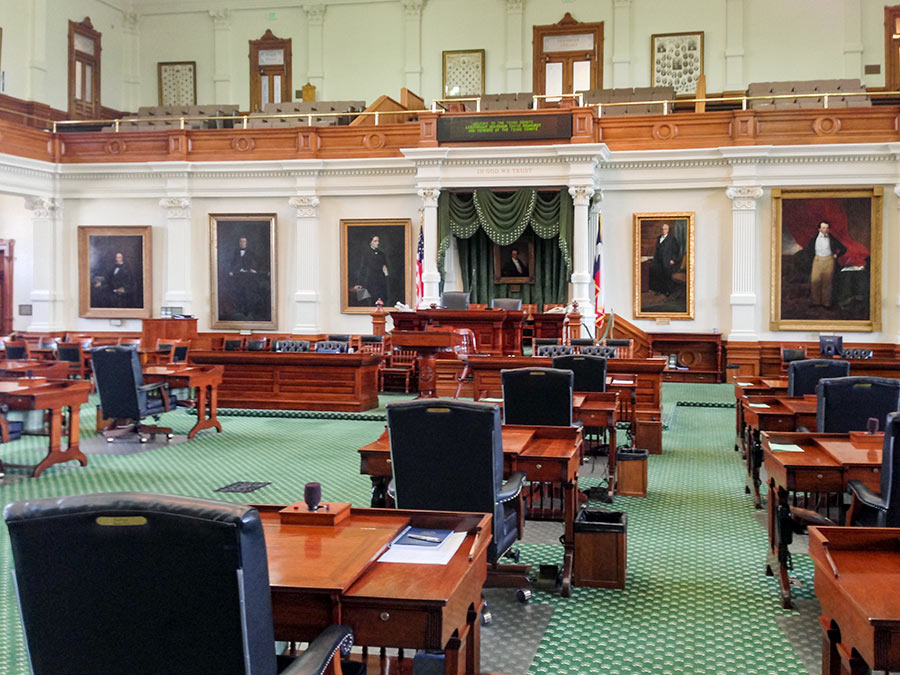 State Senator Charles Perry filed a trio of bills on Tuesday that aim to create a state-level plan for flood mitigation, to be funded by $1.2 billion drawn from Texas’s $11 billion rainy day fund, reports the Texas Tribune’s Carlos Anchondo. If the House and Senate agree to tap the state’s nest egg by a two-thirds vote — a level of consensus that’s proven difficult to reach in the past, notes Anchondo — the legislation would then divide Texas into regional flood planning groups that trace the outlines not of municipalities, but rather of the state’s watersheds in order to “ensure one community’s plans do not inadvertently negatively impact a neighboring community,” says Perry. (The Texas Water Development Board would oversee the mapping and could choose to deviate from watershed boundaries in exceptional cases.) Within every watershed group, a representative from each county would receive a single vote, which they’d use to hash out a regional flood plan including both physical projects (such as reservoir improvements) and strategies (such as strengthening building codes). Taking a look at each region’s plan, the state would then compile a ranked list of flood mitigation approaches across Texas and kick in portions of the $1.2 billion for them accordingly starting sometime in 2024 . . . at the earliest. [Texas Tribune; press release] Photo of the Texas Senate chamber: Arthur LeBon [license]
State Senator Charles Perry filed a trio of bills on Tuesday that aim to create a state-level plan for flood mitigation, to be funded by $1.2 billion drawn from Texas’s $11 billion rainy day fund, reports the Texas Tribune’s Carlos Anchondo. If the House and Senate agree to tap the state’s nest egg by a two-thirds vote — a level of consensus that’s proven difficult to reach in the past, notes Anchondo — the legislation would then divide Texas into regional flood planning groups that trace the outlines not of municipalities, but rather of the state’s watersheds in order to “ensure one community’s plans do not inadvertently negatively impact a neighboring community,” says Perry. (The Texas Water Development Board would oversee the mapping and could choose to deviate from watershed boundaries in exceptional cases.) Within every watershed group, a representative from each county would receive a single vote, which they’d use to hash out a regional flood plan including both physical projects (such as reservoir improvements) and strategies (such as strengthening building codes). Taking a look at each region’s plan, the state would then compile a ranked list of flood mitigation approaches across Texas and kick in portions of the $1.2 billion for them accordingly starting sometime in 2024 . . . at the earliest. [Texas Tribune; press release] Photo of the Texas Senate chamber: Arthur LeBon [license]
Tag: State Laws
WHY YOU MIGHT WANT TO FILE YOUR HARVEY INSURANCE CLAIMS BEFORE FRIDAY 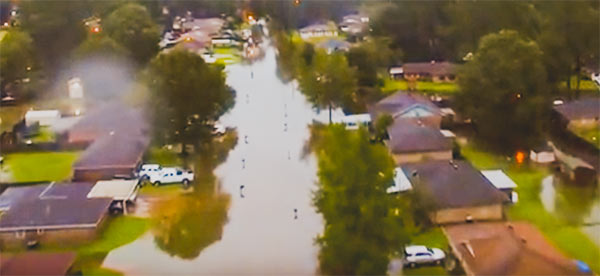 Suffered property damage from Hurricane Harvey and have access to a smartphone, computer, pen and paper, or your insurance agent? Forget about waiting for waters to recede before filing any insurance claim. You’ll want to do it now — or at least before Friday. What’s the rush? The new Texas law formerly known as House Bill 1774, passed by the Texas Legislature this session and signed by Governor Abbott in May, goes into effect on September 1. The “hailstorm lawsuit reform” measure reduces property owners’ leverage with insurance companies in weather-related claims — by making it more difficult for homeowners to sue agents successfully, increasing the obstacles to filing and carrying through with lawsuits over insurance coverage, and limiting the penalties insurance companies could face if they lose a lawsuit against you. To prevent your coverage from falling under these stipulations, notify your insurance provider of your claims before the law goes into effect, and document your correspondence. [Community Impact; Texas Tribune; Property Insurance Coverage Law Blog] Photo: Randy Poole
Suffered property damage from Hurricane Harvey and have access to a smartphone, computer, pen and paper, or your insurance agent? Forget about waiting for waters to recede before filing any insurance claim. You’ll want to do it now — or at least before Friday. What’s the rush? The new Texas law formerly known as House Bill 1774, passed by the Texas Legislature this session and signed by Governor Abbott in May, goes into effect on September 1. The “hailstorm lawsuit reform” measure reduces property owners’ leverage with insurance companies in weather-related claims — by making it more difficult for homeowners to sue agents successfully, increasing the obstacles to filing and carrying through with lawsuits over insurance coverage, and limiting the penalties insurance companies could face if they lose a lawsuit against you. To prevent your coverage from falling under these stipulations, notify your insurance provider of your claims before the law goes into effect, and document your correspondence. [Community Impact; Texas Tribune; Property Insurance Coverage Law Blog] Photo: Randy Poole
TREE RULE REVENGE AND OTHER LOCAL REAL ESTATE TARGETS ON JULY’S STATE SPECIAL SESSION HIT LIST  So what all’s on governor Greg Abbott’s to-do list for July’s special legislative session, following the variously dramatic finales to House and Senate business during the normal session last month? Some 19 topics are included in the governor’s shortlist after the maybe-killed-on-purpose sunset legislation (which Abbott has said has to pass before anything else can be done); the extensive extra credit list, he says, is meant to “make [the extra session] count.“ Plopped in the middle of property tax reform, caps on local spending, changes to local permitting processes, and changes to how cities deal with construction project rules: a ban on local tree ordinances — at least, the ones that impact tree-decisions on private property. (Why the sudden focus on what the governor calls “socialistic” plant regulations, which is placed even higher up the list than taking another go at a bathroom bill? The leafy beef seems to stem from Abbott’s own run-in with an Austin tree regulation back in 2012, which didn’t ultimately prevent him from getting rid of a couple of large pecans he wanted to remove, but did slow things down.) [Office of the Texas Governor; previously on Swamplot] Photo: Swamplot inbox
So what all’s on governor Greg Abbott’s to-do list for July’s special legislative session, following the variously dramatic finales to House and Senate business during the normal session last month? Some 19 topics are included in the governor’s shortlist after the maybe-killed-on-purpose sunset legislation (which Abbott has said has to pass before anything else can be done); the extensive extra credit list, he says, is meant to “make [the extra session] count.“ Plopped in the middle of property tax reform, caps on local spending, changes to local permitting processes, and changes to how cities deal with construction project rules: a ban on local tree ordinances — at least, the ones that impact tree-decisions on private property. (Why the sudden focus on what the governor calls “socialistic” plant regulations, which is placed even higher up the list than taking another go at a bathroom bill? The leafy beef seems to stem from Abbott’s own run-in with an Austin tree regulation back in 2012, which didn’t ultimately prevent him from getting rid of a couple of large pecans he wanted to remove, but did slow things down.) [Office of the Texas Governor; previously on Swamplot] Photo: Swamplot inbox
COMMENT OF THE DAY: THE NEXT ASTRODOME ELECTION IS ALREADY SCHEDULED, ANYWAY  “Great to see that a bill specifically tailored to torpedo the Astrodome has been shot down. The state politicians should not meddle in local county affairs. Did anyone ever ask Houston and Harris County voters to spend millions upon millions to host another Super Bowl? Or to upgrade Reliant Stadium to please McNair? If the county’s financing plan is legitimate (no bonds issued, and a referendum not required), let them continue. Harris county voters have already spoken by voting Emmett and others in. They’ll have their chance to vote them out if needed. The revitalized Dome could be something special — why waste a unique structure and a Houston landmark?” [Blake, commenting on The Bill To Force an Astrodome Garage-ification Election Is Dead, Again, For Now] Illustration: Lulu
“Great to see that a bill specifically tailored to torpedo the Astrodome has been shot down. The state politicians should not meddle in local county affairs. Did anyone ever ask Houston and Harris County voters to spend millions upon millions to host another Super Bowl? Or to upgrade Reliant Stadium to please McNair? If the county’s financing plan is legitimate (no bonds issued, and a referendum not required), let them continue. Harris county voters have already spoken by voting Emmett and others in. They’ll have their chance to vote them out if needed. The revitalized Dome could be something special — why waste a unique structure and a Houston landmark?” [Blake, commenting on The Bill To Force an Astrodome Garage-ification Election Is Dead, Again, For Now] Illustration: Lulu

The state bill proposed by Houston-area senator John Whitmire (to require a vote on major county-funded upgrades to certain Texas stadiums that happen to be the Astrodome) was killed in the Texas House by a different Houston-area legislator, Robert Arnold reports this week for KHOU. (That likely means the work on Harris County’s plan to fill in the bottom of the Dome with an underground parking garage can go ahead without a special election on the spending.) The bill actually passed the Senate at the end of March, but died in the House’s County Affairs committee chaired by representative Garnet Coleman (whose own legislative district ever-so-slightly overlaps Whitmire’s around Fourth Ward: From there, Coleman’s District 147 stretches down through Third Ward toward the Beltway along the Gulf Freeway, while Whitmire’s Senate District 15 horseshoes up 290 to FM 1960 and Humble before looping back down to the Ship Channel). Arnold says the bill made an unsuccessful comeback attempt as an amendment to another measure, and looks to be dead for now as of yesterday’s end of the normal legislative calendar. (Then again — who knows what might pop up during a special session?)
- Plans for Astrodome Go Forward after Bill Dies [KPRC]
- Previously on Swamplot:Â Preservationists, Heineken Now Crowdsourcing $15K To Let People Party in the Astrodome;Â State Committee Okays Bill To Require ‘Certain Counties’ To Vote on Astrodome Parking Garage-ification;Â Judge Emmett on the New Plan To Rein In the New Astrodome Plan;Â Astrodome To Be Highlighted for Supporting Role as Super Bowl Storage Facility;Â County Approves First $10.5 Million for Astrodome Basement Parking Garage Plan; How You’d Park Under Astrodome’s Floor, and Where To Fish for More Details;County Wants To Fill In the Astrodome’s Flood Levels with Parking; The Glittering 5-Story Affordable Housing Thinktank Bubble That Could Rise by Emancipation Park
- All Astrodome coverage [Swamplot]
Schematic of county Astrodome parking garage plan: Harris County Engineering Dept.
LYFT PREPARES TO DIVE BACK INTO HOUSTON, WOOS DISGRUNTLED UBER DRIVERS AT IAH  Barring an out of character veto from governor Greg Abbott, that Texas law that Uber and Lyft have been angling for (the one that would stop cities from requiring more stringent background checks on their rideshare drivers, like Houston did) should go into effect shortly, now that the state Senate has passed the measure with more than 2 thirds support. Lyft pulled out of Houston in late 2014 over the local rule change, while Uber just made some noise about doing so. Meagan Flynn reports for the Press that a Lyft rep was spotted in a waiting lot at IAH on Monday passing out business cards to Uber drivers, some of whom were on a brief strike over wages and company policies. The rep said the company would be back in town soon, if the bill becomes law; the company has also put out a few job ads for Houston operations staff. [Houston Press; previously on Swamplot] Photo of Radiant Fountains sculptures near IAH: elnina via Swamplot Flickr Pool
Barring an out of character veto from governor Greg Abbott, that Texas law that Uber and Lyft have been angling for (the one that would stop cities from requiring more stringent background checks on their rideshare drivers, like Houston did) should go into effect shortly, now that the state Senate has passed the measure with more than 2 thirds support. Lyft pulled out of Houston in late 2014 over the local rule change, while Uber just made some noise about doing so. Meagan Flynn reports for the Press that a Lyft rep was spotted in a waiting lot at IAH on Monday passing out business cards to Uber drivers, some of whom were on a brief strike over wages and company policies. The rep said the company would be back in town soon, if the bill becomes law; the company has also put out a few job ads for Houston operations staff. [Houston Press; previously on Swamplot] Photo of Radiant Fountains sculptures near IAH: elnina via Swamplot Flickr Pool
EARLY VOTING OPEN NOW FOR HISD’S SPECIAL MAY 6TH ‘YOU SURE YOU WANNA DO THAT?’ ELECTION 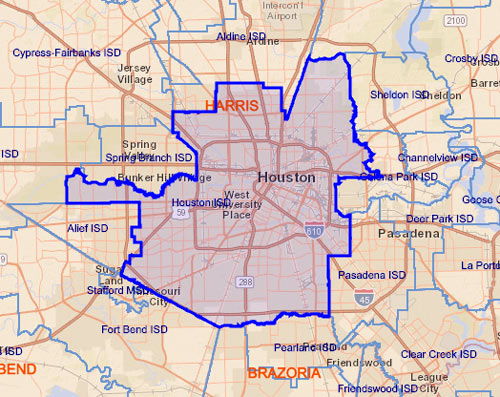 Early voting opened this past Monday and goes through next Tuesday, May 2nd, if you don’t wanna wait for the official May 6th election day to weigh in a second time on HISD Prop. 1. The ballot question, as Andrew Schneider notes this week for Houston Public Media, addresses the same funding recapture proposition that didn’t pass in November (meaning HISD voters opted not to send the state of Texas some $160-ish million in property tax money, as required under the current state education funding system.) The state responded in the spring with a list of $8 billion worth of skyscrapers, malls, refineries, and other properties it could pluck from HISD’s boundaries if the district doesn’t pay up; it also dropped the amount potentially owed this year down to $77.5 million as a nod to potential HISD revenue lost to the city’s homestead exemption. [Houston Public Media; previously on Swamplot] Map of HISD and surrounding school districts: Texas Education Agency District Locator
Early voting opened this past Monday and goes through next Tuesday, May 2nd, if you don’t wanna wait for the official May 6th election day to weigh in a second time on HISD Prop. 1. The ballot question, as Andrew Schneider notes this week for Houston Public Media, addresses the same funding recapture proposition that didn’t pass in November (meaning HISD voters opted not to send the state of Texas some $160-ish million in property tax money, as required under the current state education funding system.) The state responded in the spring with a list of $8 billion worth of skyscrapers, malls, refineries, and other properties it could pluck from HISD’s boundaries if the district doesn’t pay up; it also dropped the amount potentially owed this year down to $77.5 million as a nod to potential HISD revenue lost to the city’s homestead exemption. [Houston Public Media; previously on Swamplot] Map of HISD and surrounding school districts: Texas Education Agency District Locator
UNTIL WE FORGET THE ALAMO WASN’T ALWAYS JUST A TEX-MEX CHAIN  “Once you start erasing history, who knows where it ends?” writes Cort McMurray in today’s Chronicle, scripting out a taste of potential dystopian franchise future for Houston and Texas’s most prominent landmarks should that bill that would gut preservation rules across the state make it through the legislature this session. The problem with the bill, he argues, is that it “makes forgetting easy” — and “in a place with no patience for memories, no place is sacred.” Before launching into a scene depicting how the Alamo might come to be repurposed into imaginary family-friendly megachain Casey Dilla’s, McMurray writes that “using a broad, vaguely worded standard — just what does ‘widely known’ mean? — to address the question of what’s historically significant to a community is a little like rewriting Hamlet entirely in emojis: a lot of really important stuff is going to be lost. And we will be left with a state that’s little more than the affable hell of FM 518 at Highway 288, traffic and pavement and an endless supply of family-friendly chain restaurants, serving an awful pastiche of Tex-Mex.” [Houston Chronicle; previously on Swamplot] Mural commemorating Peacock Records, the former home of which was demolished last month: Spectrum Audio
“Once you start erasing history, who knows where it ends?” writes Cort McMurray in today’s Chronicle, scripting out a taste of potential dystopian franchise future for Houston and Texas’s most prominent landmarks should that bill that would gut preservation rules across the state make it through the legislature this session. The problem with the bill, he argues, is that it “makes forgetting easy” — and “in a place with no patience for memories, no place is sacred.” Before launching into a scene depicting how the Alamo might come to be repurposed into imaginary family-friendly megachain Casey Dilla’s, McMurray writes that “using a broad, vaguely worded standard — just what does ‘widely known’ mean? — to address the question of what’s historically significant to a community is a little like rewriting Hamlet entirely in emojis: a lot of really important stuff is going to be lost. And we will be left with a state that’s little more than the affable hell of FM 518 at Highway 288, traffic and pavement and an endless supply of family-friendly chain restaurants, serving an awful pastiche of Tex-Mex.” [Houston Chronicle; previously on Swamplot] Mural commemorating Peacock Records, the former home of which was demolished last month: Spectrum Audio
TEXAS MAY DEMOLISH YOUR LOCAL PRESERVATION LAWS  Ever worry that Houston’s historical preservation rules are just too darn strict? Tired of having to wait a whole 90 days to go ahead and do whatever you were going to do anyway to that non-protected city landmark? A public hearing has been scheduled for next Tuesday in Austin on a state bill that would gut and restructure local historic preservation procedures across Texas. The bill, as Preservation
Ever worry that Houston’s historical preservation rules are just too darn strict? Tired of having to wait a whole 90 days to go ahead and do whatever you were going to do anyway to that non-protected city landmark? A public hearing has been scheduled for next Tuesday in Austin on a state bill that would gut and restructure local historic preservation procedures across Texas. The bill, as Preservation Houston Texas put it to VBX‘s Adolfo Pesquera last month, “clumsily attempts to impose a woefully old-fashioned ‘George Washington slept here’ standard of historical significance:” The measure appears to limit new historical designations to either 1) structures lived in by a famous person or 2) places where something “widely recognized as a historic event” happened. (Under that standard, the Astrodome might make the cut for Evel Knieval’s 13-car motorcycle jump.) Houston’s own District 135 rep Gary Elkins is the only sponsor of the measure, which would also require that any movements to designate areas of “historical, cultural, or architectural significance” get support from 3 quarters of the city council or the local planning commission. The measure also may put the final say on any proposed changes to a protected structure in the hands of a single “municipal official,” who will have 30 days to give a yea or nay. [Virtual Builder’s Exchange; bill here; previously on Swamplot] Photo of protected former home of August von Haxthausen at 2120 Sabine St.: HAR
COMMENT OF THE DAY: AN ABSURDIST EVERYMAN’S VISIT TO HIS LOCAL MANAGEMENT DISTRICT BOARD  “If you attend a TIRZ meeting at 8:00 AM on a Friday morning, you will realize the distrust and dissent that the TIRZ has created in a once cohesive community. As the meeting convenes, you can hear the roar of the cement truck in the background, covering every square foot of the TIRZ district with parking garages and multistory apartments. And where is the detention for all this impervious surface? The storm water runoff is detained in the residential streets and private homes of the surrounding neighborhoods. Just try signing up for the Public Comment period. Your 2 minutes disappear as the Chair detects an speaker unsympathetic to the TIRZ and cuts the mike. Your questions are not answered, so you try again, this time with an Open Records Request. Now you meet the TIRZ lawyers, plural, a sassy bunch, who can look you in the face and say with impunity that the record does not exist. It was just a typo.” [Long Time Houstonian, commenting on State Bill Would Call for TIRZ Elections in Certain Cities That End in ‑OUSTON] Illustration: Lulu
“If you attend a TIRZ meeting at 8:00 AM on a Friday morning, you will realize the distrust and dissent that the TIRZ has created in a once cohesive community. As the meeting convenes, you can hear the roar of the cement truck in the background, covering every square foot of the TIRZ district with parking garages and multistory apartments. And where is the detention for all this impervious surface? The storm water runoff is detained in the residential streets and private homes of the surrounding neighborhoods. Just try signing up for the Public Comment period. Your 2 minutes disappear as the Chair detects an speaker unsympathetic to the TIRZ and cuts the mike. Your questions are not answered, so you try again, this time with an Open Records Request. Now you meet the TIRZ lawyers, plural, a sassy bunch, who can look you in the face and say with impunity that the record does not exist. It was just a typo.” [Long Time Houstonian, commenting on State Bill Would Call for TIRZ Elections in Certain Cities That End in ‑OUSTON] Illustration: Lulu
TPWD: CHEF INVOLVED IN RUGGLES ESTABLISHMENTS INVOLVED IN GIANT ILLEGAL FISH NETWORK, TOO  Following 2 years of investigation — and the discovery of some 1,900 pounds of illegal red snapper on an unlicensed boat near Freeport — the Texas Parks and Wildlife Department alleged today that Bruce Molzan  (long one of the main players in most of the Ruggles [Blank] establishments around town, most recently Ruggles Black) is tangled up with what may be the largest illegal seafood network ever uncovered in Texas. A press release from the department says the aquatic activities in question, which so far have warranted the handout of some 200 misdemeanor citations, have been going on since 2013. The state’s allegations toward Molzan include the purchase of illegally harvested finfish, as well as illegal shrimp purchases from another restaurant, for inclusion on Ruggles Black’s and Ruggles Green’s implicitly health– and sustainability-minded menus. (Molzan separated from Ruggles Green back in October, after its original W. Alabama location scooted over into the new midrise down the block; the new owners of Ruggles Green say that fish acquisitions since Molzan left have all been by the books.) [TPWD; previously on Swamplot] Photo of Ruggles Green on W. Alabama: Swamplot inbox
Following 2 years of investigation — and the discovery of some 1,900 pounds of illegal red snapper on an unlicensed boat near Freeport — the Texas Parks and Wildlife Department alleged today that Bruce Molzan  (long one of the main players in most of the Ruggles [Blank] establishments around town, most recently Ruggles Black) is tangled up with what may be the largest illegal seafood network ever uncovered in Texas. A press release from the department says the aquatic activities in question, which so far have warranted the handout of some 200 misdemeanor citations, have been going on since 2013. The state’s allegations toward Molzan include the purchase of illegally harvested finfish, as well as illegal shrimp purchases from another restaurant, for inclusion on Ruggles Black’s and Ruggles Green’s implicitly health– and sustainability-minded menus. (Molzan separated from Ruggles Green back in October, after its original W. Alabama location scooted over into the new midrise down the block; the new owners of Ruggles Green say that fish acquisitions since Molzan left have all been by the books.) [TPWD; previously on Swamplot] Photo of Ruggles Green on W. Alabama: Swamplot inbox
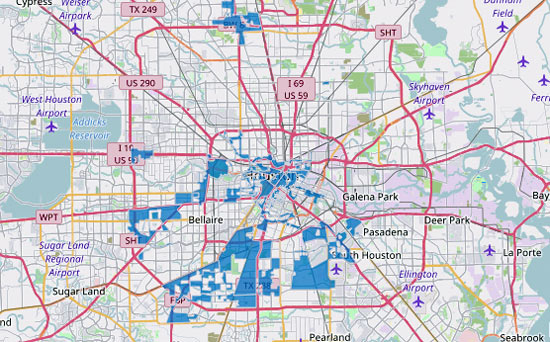
A bill filed Monday in Austin would mandate that more than half of the folks running each of Houston’s often opaque but increasingly well-heeled tax increment reinvestment zones be elected for 2-year terms by nearby residents of the zones, as opposed to the current system of city council appointments. The bill, proposed by west Houston rep Dwayne Bohac, employs the same handy Houston-targeting filter trick as that other recently filed state bill calling for a vote on what Harris County wants to do to the Astrodome: the bill’s language pinpoints only cities with a population of more than 2 million (of which Texas has exactly 1). If the measure makes it through all the necessary committees and passes, elections for board members would need to be held in 2018.
STATE COMMITTEE OKAYS BILL TO REQUIRE ‘CERTAIN COUNTIES’ TO VOTE ON ASTRODOME PARKING GARAGE-IFICATION 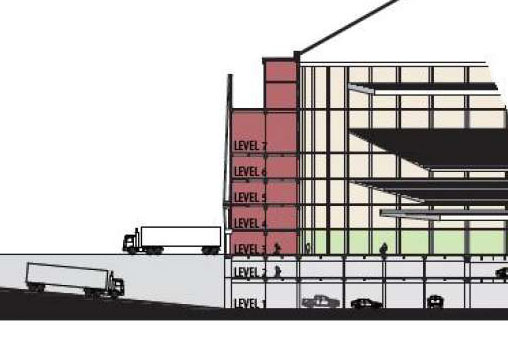 The Texas senate’s committee on intergovernmental relations gave an early stamp of approval to that bill that would require Harris County to hold a vote on the plan recently set in motion to turn the Astrodome’s sunken field into an underground parking garage, Mihir Zaveri notes in the Chronicle this morning. The bill’s language doesn’t explicitly single out the Dome and the county commissioners; it would just mandate that “certain counties” — those with a population of 3.3 million or more — would need to call a vote on work related to “certain sports facilities” if the price tag of a given project reaches $10 million — namely, those sports facilities already more than 50 years old when the bill passes. (Harris County, with a population estimated around 4.5 million, is the only Texas county that comes remotely close to passing the bill’s size threshold.) [Houston Chronicle; Texas Legislature; previously on Swamplot] Schematic of Astrodome parking plan: Harris County Engineering Dept.
The Texas senate’s committee on intergovernmental relations gave an early stamp of approval to that bill that would require Harris County to hold a vote on the plan recently set in motion to turn the Astrodome’s sunken field into an underground parking garage, Mihir Zaveri notes in the Chronicle this morning. The bill’s language doesn’t explicitly single out the Dome and the county commissioners; it would just mandate that “certain counties” — those with a population of 3.3 million or more — would need to call a vote on work related to “certain sports facilities” if the price tag of a given project reaches $10 million — namely, those sports facilities already more than 50 years old when the bill passes. (Harris County, with a population estimated around 4.5 million, is the only Texas county that comes remotely close to passing the bill’s size threshold.) [Houston Chronicle; Texas Legislature; previously on Swamplot] Schematic of Astrodome parking plan: Harris County Engineering Dept.

A letter up on the website of the Texas Education Agency — addressed to the HISD Board of Trustees and dated to last Thursday — provides what the state organization says is a preliminary list of the high-value Houston properties that might be detached from the district and tacked onto Aldine ISD. The transfer is the proposed response to last fall’s election by HISD residents not to authorize that payment of over-the-per-student-cap property tax revenue to the state for redistribution to other districts. Campaigners had hoped the “no” vote on the resolution would cause the Legislature to look at reforming the state’s education funding scheme (which the state high court raised an eyebrow at last year, but left in place).
On the same day the letter was issued, the HISD board voted to call a new election on the recapture/detachment question; the TEA has also set a lower figure for the district’s initial required payment to the state, in light of the fact that HISD doesn’t collect some potential property tax revenue because of homestead exemption rules. The letter tallies up the marked-for-snagging properties at more than $8.024 billion in total assessment value, and includes the Galleria, the Williams Tower, a slew of downtown office buildings, the CityWestPlace complex near Beltway 8, and 2 refineries. The list itself mentions only addresses and parcel numbers, connected mostly to the buildings below and a number of their associated parking garages:
JUDGE EMMETT ON THE NEW PLAN TO REIN IN THE NEW ASTRODOME PLAN 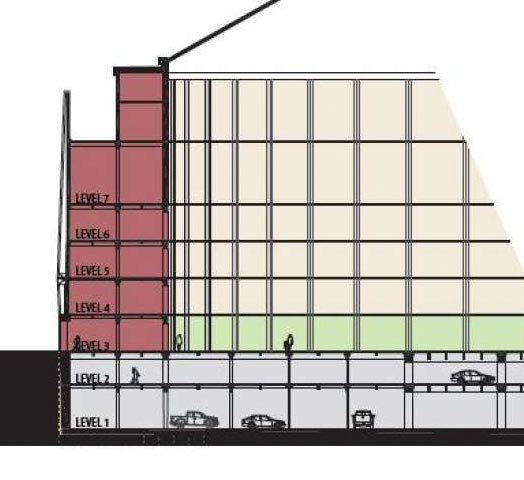 Here’s the statement judge Ed Emmett’s office just released to FOX26 in response to this afternoon’s news of District 15 senator John Whitmire’s about-to-be-filed bill to require a Harris County voter okay on that plan to turn the Astrodome’s bottom into a parking garage: “It’s frustrating that while the Astrodome stood vacant for more than 15 years, very few people stepped forward to offer real solutions. But now that we on Commissioners Court have finally arrived at a way to preserve the Dome as a revenue-generating asset for the people of Harris County, Sen. Whitmire’s legislation risks derailing that solution. The Astrodome is a paid-for asset that needs to be used for the benefit of the overall NRG Park complex. Creating more than 8 acres of covered usable space along with 1,400 indoor parking spaces will generate revenue that will allow the county to maintain NRG Stadium and the rest of the complex.” The bill could potentially shut down the parking garage plan, if county-wide support can’t be mustered to support the project; demolition plans, on the other hand, are now subject to review by the Texas Historical Commission, as of late last month’s State Antiquities Landmark designation. [FOX26; previously on Swamplot] Astrodome parking plan schematic: Harris County Engineering Department
Here’s the statement judge Ed Emmett’s office just released to FOX26 in response to this afternoon’s news of District 15 senator John Whitmire’s about-to-be-filed bill to require a Harris County voter okay on that plan to turn the Astrodome’s bottom into a parking garage: “It’s frustrating that while the Astrodome stood vacant for more than 15 years, very few people stepped forward to offer real solutions. But now that we on Commissioners Court have finally arrived at a way to preserve the Dome as a revenue-generating asset for the people of Harris County, Sen. Whitmire’s legislation risks derailing that solution. The Astrodome is a paid-for asset that needs to be used for the benefit of the overall NRG Park complex. Creating more than 8 acres of covered usable space along with 1,400 indoor parking spaces will generate revenue that will allow the county to maintain NRG Stadium and the rest of the complex.” The bill could potentially shut down the parking garage plan, if county-wide support can’t be mustered to support the project; demolition plans, on the other hand, are now subject to review by the Texas Historical Commission, as of late last month’s State Antiquities Landmark designation. [FOX26; previously on Swamplot] Astrodome parking plan schematic: Harris County Engineering Department

